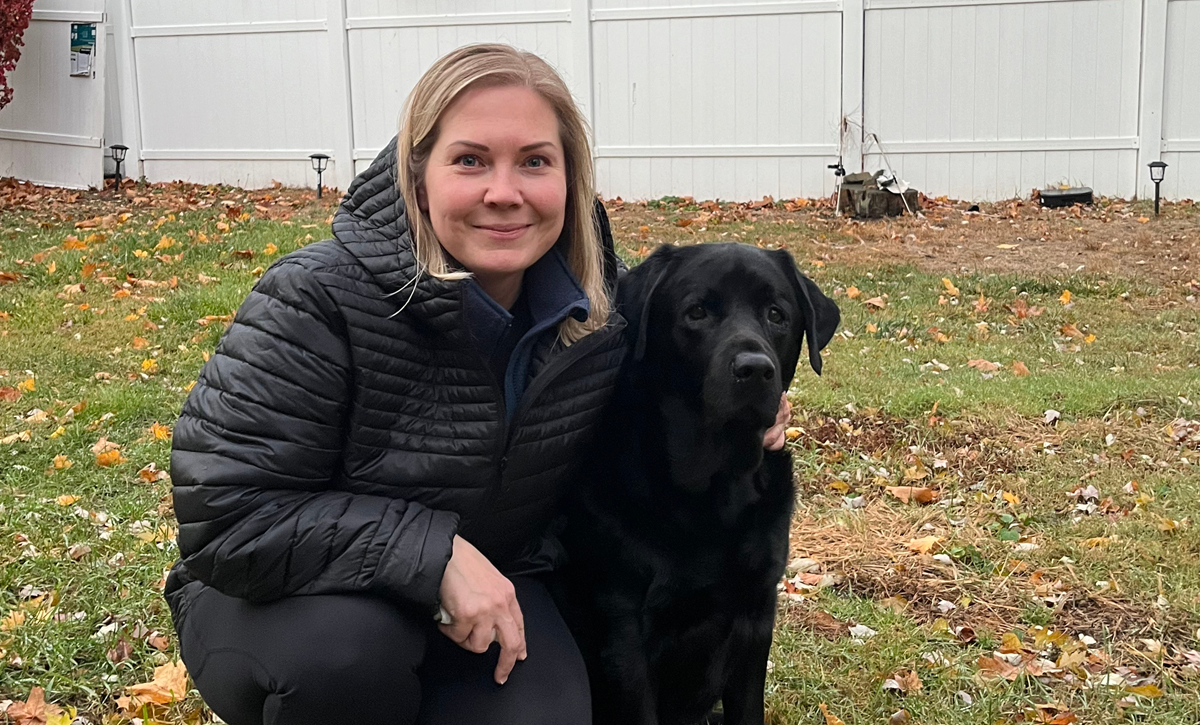Jenny Hogstrom
Postdoctoral Research Fellow, Ludwig Harvard
Tell us a bit about yourself, where you’re from, where you were raised, and a bit about your family.
I’m from Finland and I did all my education there, so bachelor’s, master’s and PhD at the University of Helsinki. I was the first in my family to go to university. I was always fascinated by biology, ever since I was in elementary school. In high school I got very interested in genetics, and at that point I started thinking maybe this could be something that I would like to study. And my parents, although they have no background in science and are from working class families, they were very encouraging that I should go to university and study what I am passionate about. I’m also very lucky that Finland has free education. But it was really at the masters stage that I became interested in cancer research. I had to pick a subject to start research, and there were a lot of interesting cancer labs at University of Helsinki. I ended up studying colorectal cancer and patient-derived organoid models, and that’s what I did my thesis on.
What do your parents do?
My mom works for the police. She worked first as a secretary and then dealing with driving licenses. My dad, he’s been a chef, then he went into real estate and selling furniture. So very far from what I’m doing.
Do you have any siblings?
I do. I have a younger brother and a much younger sister. They’re back in Finland. My whole family is there.
What is your research focused on now? What scientific challenges is your work looking to address?
I work with hormone receptor-positive breast cancer and mainly from a tumor microenvironment point of view—so, specifically, the cancer-associated fibroblasts and what they secrete to make these breast cancer cells resistant to targeted therapies. I’m also especially interested in patient-derived models, so I have established matching cancer-associated fibroblasts and patient-derived organoid cultures from patient biopsies of both primary and metastatic breast cancer.
What interests you about that subject, specifically about the patient models?
We really need better models to study hormone receptor-positive breast cancer. We wanted to try to see if we could do it from biopsies, and if we could derive both stromal cells from the tumor microenvironment with the breast cancer cells, and we were successful in that. Now we’re using these models to study drug resistance to targeted therapies.
Of course, it’s not complete—we don’t have immune cells—but we do have the cancer-associated fibroblasts, and we are interested in what they are secreting and how that stimulates drug resistance. I’m personally very interested in cell metabolism, so I’m investigating what metabolites they are secreting and how that affects the breast cancer cells and drug resistance. And this is something that hasn’t really been studied that much, especially not in breast cancer and hormone receptor-positive breast cancer.
What emerging technologies in your field excite you the most?
Well, I have a certain technology that I’m very excited about, which is the single-cell metabolomics. It’s on the way. That’s something that excites me a lot because then we can look at how metabolism is different in different cells. The tumor microenvironment and breast cancer cells are very heterogeneous, and I can only imagine that metabolism in these different populations is very different. So I’m hoping that will be available in the next five years.
What are your hobbies?
I have a dog, so at least when he was younger, we were very interested in different types of training, obedience training, of course, spending time with him. He is a Labrador. They’re very smart and very good at learning stuff. So that’s what I was doing most of the time. I mean, I love traveling also but I’m getting to do that less and less. I wish I had more time, because I used to travel a lot when I was younger and just love seeing new places.
I’m also doing renovations at the moment, so that’s my free time. Learning new things that I never thought I would.
Is there anything you do to incorporate Finnish holiday traditions over here?
I try to incorporate some of the foods. I love the Finnish Christmas pastries. It’s just a puff pastry with, like, plum jam. Oh, that’s my favorite. That’s something I can make here. Then all of the other ones are something that my parents always made, and I should probably learn how to make all of those dishes.
